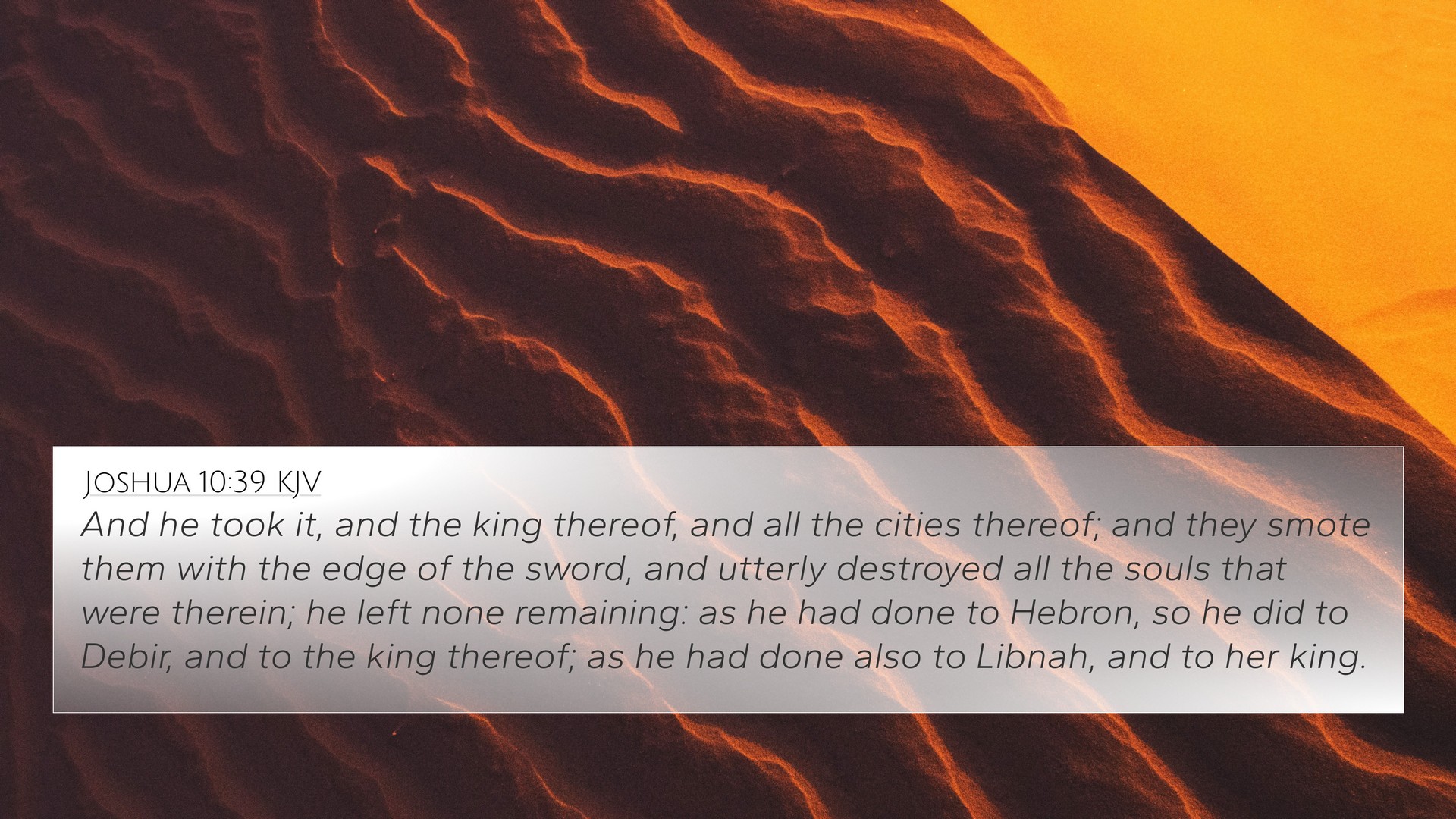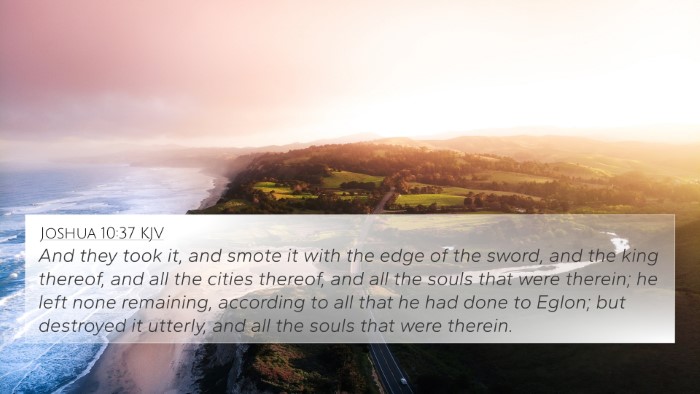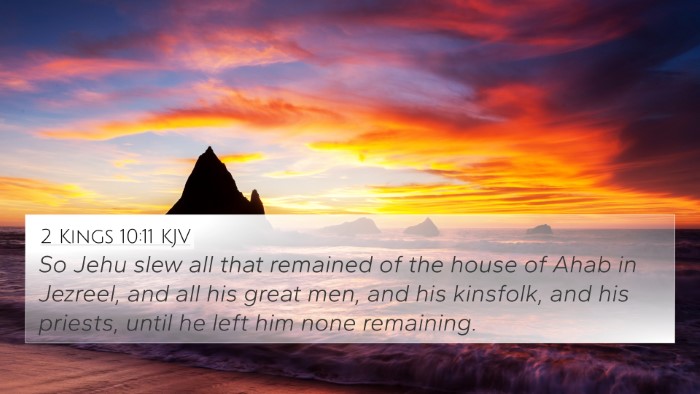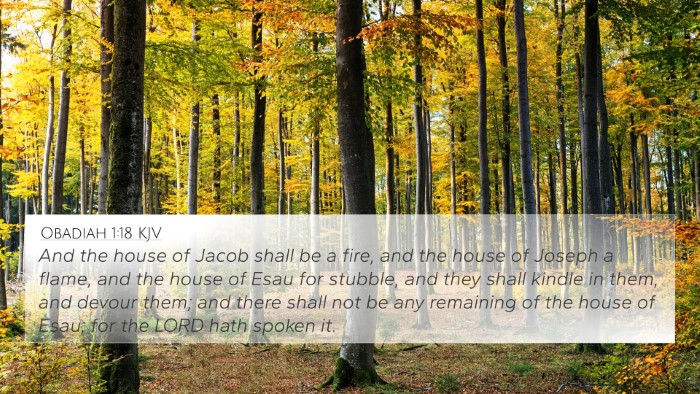Understanding Joshua 10:39
Joshua 10:39 states, "And he took it, and the king thereof, and all the cities thereof; and they utterly destroyed all the souls that were therein; he left none remaining; according to all that he had done to Eglon, but destroyed it utterly, and all the souls that were therein." This verse emphasizes the totality of Joshua's conquest over the city of Makkedah, reflecting God's command for complete destruction in the context of the Israelite conquest of Canaan.
Summary of Insights from Public Domain Commentaries
To grasp the full meaning of Joshua 10:39, we can draw on insights from several renowned commentaries:
-
Matthew Henry:
Henry highlights that this event reflects God's judgment against the wickedness of these nations. The complete destruction signifies divine retribution and the seriousness of sin.
-
Albert Barnes:
Barnes points out that the destruction of Makkedah, like the previous conquests, is a demonstration of God fulfilling His promises to Israel, emphasizing that the battles were fought by God, not merely by human effort.
-
Adam Clarke:
Clarke emphasizes the importance of obedience in carrying out God's commands. He interprets the annihilation of all inhabitants as an act meant to prevent the corruption of Israel by foreign influences.
Cross-References
Joshua 10:39 is intricately connected to several other passages in the Bible, illustrating themes of conquest, divine judgment, and the consequences of sin:
- Deuteronomy 20:16-18: God's command regarding the treatment of cities that are far off.
- Joshua 6:21: The destruction of Jericho serves as a parallel to the total destruction seen in Makkedah.
- Numbers 21:3: The complete destruction of the Canaanites in response to Israel's cries for help.
- 1 Samuel 15:3: God's edict for complete destruction of the Amalekites, showcasing ongoing divine judgment.
- Psalm 106:34-36: Reflects on Israel's failure to destroy the nations and the consequences that followed.
- Romans 2:6: God will repay each person according to what they have done, echoing the themes of judgment found in Joshua.
- Revelation 16:6: The idea of being judged according to deeds is echoed in eschatological contexts.
Connecting Themes
The narrative of Joshua 10:39 connects deeply with the overarching theme of God's sovereignty and justice throughout Scripture. The destruction mandated by God serves as both a historical account and a theological statement regarding God's holiness and the severity of sin. This verse acts as a reminder of the seriousness of spiritual warfare and the lengths to which God may go to preserve His covenant people.
Using Cross-References for Deeper Understanding
For those seeking to explore the connections and themes more deeply, the following tools and methods can assist in cross-referencing Bible passages:
- Utilize a Bible concordance to find words and themes related to conquest and judgment.
- Employ a cross-reference Bible study method to map out relationships between verses.
- Explore comprehensive Bible cross-reference materials for a more in-depth look at interconnections.
Conclusion
In summary, Joshua 10:39 is not just a historical narrative but a rich theological statement about God's justice, the seriousness of sin, and the importance of obedience to divine commands. By engaging with cross-references, believers can uncover layers of meaning and develop a more profound understanding of how this verse connects with the broader narrative of Scripture and themes of divine judgment and sovereignty.









